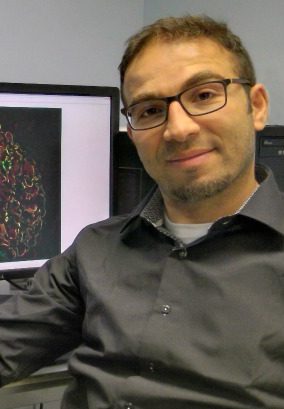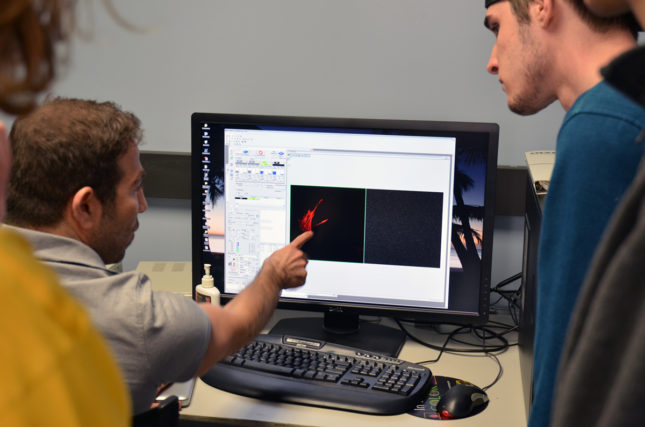
Hani Suleiman, MD, PhD, Assistant Professor in the Division of Nephrology at Washington University in St. Louis, has been awarded a four-year, $1.37M R01 grant from the National Institute of Diabetes and Digestive and Kidney Diseases (NIDDK) to study the “Molecular Determinants of Kidney Podocyte Architecture in Health, Injury, and Recovery.”
Dr. Suleiman’s research focuses on podocytopathies, a group of glomerular diseases that affect the kidney’s ability to filter the blood, and that often lead to kidney failure. Healthy podocytes cover the glomerular capillaries with foot processes, extensions that interdigitate with each other “like the fingers of two hands.” The podocyte’s actin cytoskeleton maintains its elaborate cell shape and, thus, its proper function.
With injury or insult to the kidney, a reorganization of podocyte actin cytoskeleton results in foot process effacement. Suleiman’s previous research has shown that there is a shift in the spatial distribution of actin cables. The current proposal will define the molecular mechanisms that regulate the various types of actin cables in podocytes and the nature of the changes that take place after injury.
“Our goal is to expand our understanding of the molecular mechanisms that regulate the composition and dynamics of the actin cytoskeleton, a step that will help us in designing novel therapeutic approaches to directly impact podocyte foot process architecture and help cure kidney glomerular diseases,” says Suleiman.
Visit the Suleiman lab to learn more about his research. On Twitter, follow @hansul and keep up with our Division @WUNephrology.

Read more about Dr. Hani Suleiman in the WashU Nephrology news: